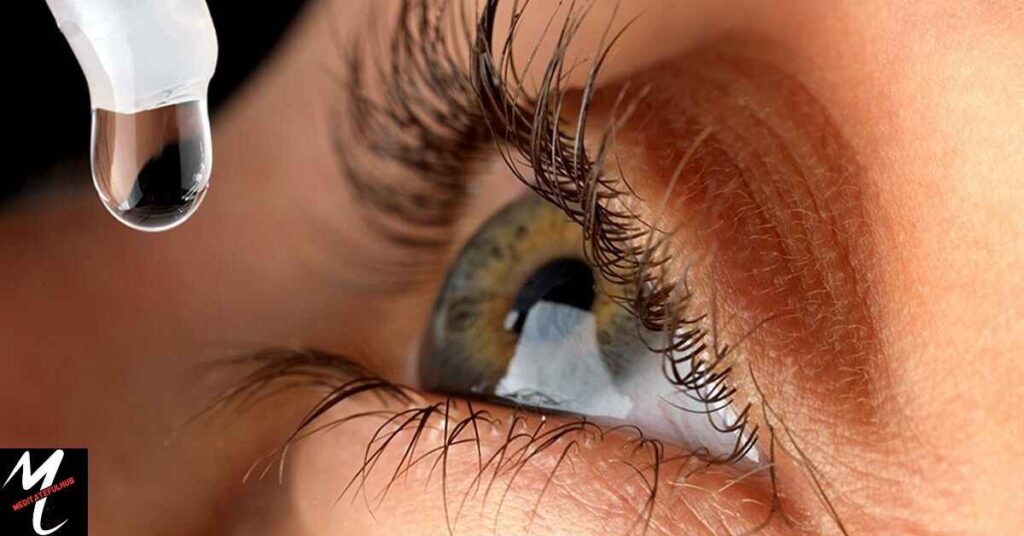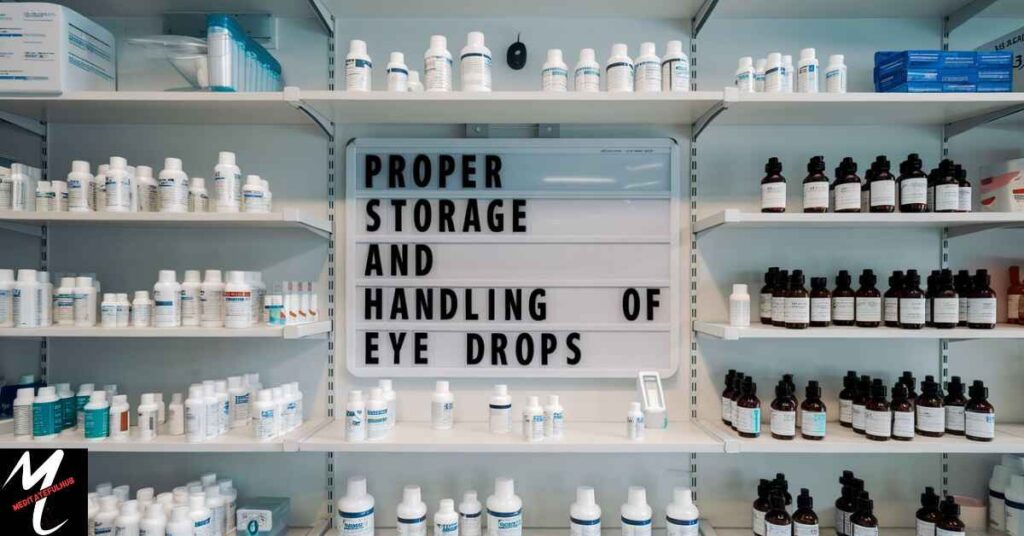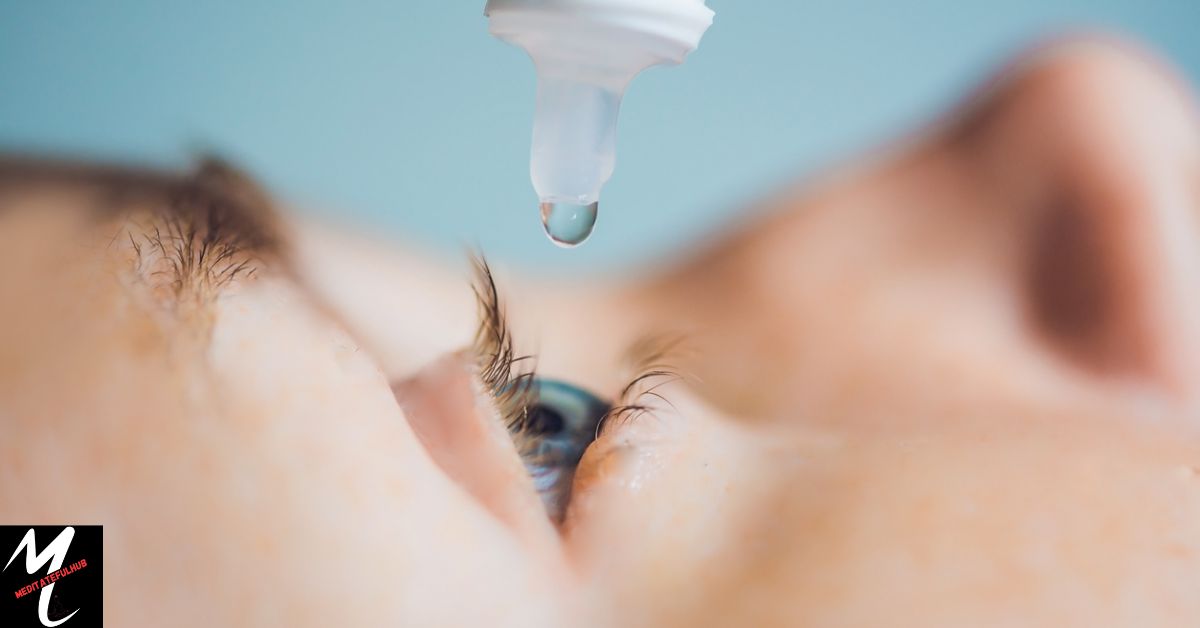Eye drops are essential for many people’s eye health, but using expired ones can lead to serious problems. Out-of-date eye drops may lose effectiveness, causing ongoing eye issues to worsen. Even more concerning, they can harbor harmful bacteria, potentially leading to infections.
The consequences of using expired eye drops range from mild irritation to severe eye damage. This comprehensive guide explores the risks associated with out-of-date eye drops, explains why expiration dates matter, and provides crucial information on proper storage and usage. Learn how to protect your vision and ensure your eye drops are safe and effective.
The Importance of Eye Drop Expiration Dates
Expiration dates on eye drops are crucial for safety and effectiveness. These dates indicate when the product might start to degrade or become contaminated. Manufacturers set these dates based on extensive testing. Using drops past their expiry can lead to reduced efficacy or potential harm. Always check the date before use to protect your eye health.
Common Misconceptions About Using Expired Eye Drops
Many people believe expired eye drops are still safe to use. This is a dangerous myth. Some think refrigeration extends shelf life indefinitely. Others assume visible changes are the only sign of expiration. In reality, expired drops can cause infections or allergic reactions. Always discard out-of-date products, even if they look fine.
Why Do Eye Drops Expire?
Eye drops expire due to chemical breakdown over time. Ingredients degrade, affecting the product’s stability and sterility. Preservatives lose effectiveness, allowing bacteria growth. The pH balance may change, irritating eyes. Exposure to light, heat, and air speeds up this process. Expiration ensures you use the product when it’s most effective and safe.
Factors Impacting Post-Expiration Efficacy
Several factors affect eye drops after expiration. Storage conditions play a big role. High temperatures speed up degradation. Exposure to light can alter chemical composition. Frequent opening introduces contaminants. The type of container matters too. Some packaging lets in more air, hastening expiration. These factors can make drops unsafe before the printed date.
The Science Behind Eye Drop Degradation
The drop degradation involves complex chemical processes. Active ingredients break down over time. This reduces their therapeutic effects. Preservatives lose potency, allowing microbial growth. The solution’s pH may shift, potentially irritating eyes. Oxidation can occur, altering the product’s composition. These changes happen gradually but accelerate after the expiration date.
Preservative-Free Eye Drops
Preservative-free drops have a shorter shelf life. They lack chemicals that prevent bacterial growth. Once opened, they become vulnerable to contamination. Many come in single-use vials for this reason. It’s crucial to discard these drops immediately after use. Never keep opened preservative-free drops, even if the expiration date hasn’t passed.
Eye Drops with Preservatives
Preserved drops last longer than preservative-free options. Chemicals in them inhibit bacterial growth. This extends their shelf life, typically to about one month after opening. However, preservatives can irritate some people’s eyes. Even with preservatives, these drops still expire. Always check the date and discard as recommended.
Antibiotic Eye Drops
Expired antibiotic drops pose serious risks. Their potency decreases over time, making them less effective against infections. Using outdated antibiotics can lead to antibiotic resistance. This makes future infections harder to treat. Always use antibiotic drops within their expiration date. Discard any leftover medication after completing the prescribed course.
Steroid Eye Drops
Using expired steroid eye drops can be dangerous. The potency of the steroid may change, leading to ineffective treatment. Worse, it could cause unexpected side effects. Steroids are powerful medications that require precise dosing. Expired drops might not provide the intended therapeutic effect. This could worsen the condition they’re meant to treat.
Read This Blog: Tech Console Defstartup: Revolutionizing the Gaming World
Reduced Efficacy: What Happens When Eye Drops Lose Potency
As eye drops age, their active ingredients break down. This reduces their effectiveness in treating eye conditions. Lubricating drops may not relieve dryness as well. Allergy drops might not reduce itching and redness effectively. Glaucoma medications could fail to lower eye pressure as needed. Using expired drops may leave eye problems untreated.
Potential Eye Infections from Out of Date Eye Drops

Out-of-date drops can harbor harmful bacteria. The preservatives may no longer effectively prevent microbial growth. Using these drops can introduce pathogens directly into your eyes. This increases the risk of eye infections, which can be serious. Symptoms may include redness, pain, discharge, and vision changes. Always use fresh drops to avoid these risks.
Allergic Reactions and Irritation
Expired drops can cause unexpected allergic reactions. Changes in chemical composition may introduce new allergens. Even if you’ve used the product before, expired drops might irritate your eyes. Symptoms can include itching, redness, swelling, and tearing. In severe cases, vision might be affected. To avoid these issues, only use in-date products.
Impact on Existing Eye Conditions
Using expired eye drops can worsen existing eye problems. For instance, old glaucoma drops might not control eye pressure effectively. Outdated antibiotic drops could fail to clear up an infection. Expired steroid drops might not reduce inflammation as needed. This can lead to progression of eye diseases. Always use fresh medication to manage chronic eye conditions.
How to Read and Interpret Eye Drop Expiration Dates
Eye drop expiration dates are typically printed on the bottle or box. The format may vary, but usually includes month and year. Some products show a specific date, like “EXP 06/2025”. Others might use a two-year shelf life from manufacturing date. Always check both the box and bottle, as dates may differ. When in doubt, ask a pharmacist for help.
Visual Cues: Spotting Expired Eye Drops
Visually inspect your drops regularly. Look for changes in color or consistency. Cloudy solution in previously clear drops is a red flag. Check for floating particles or sediment. Dried residue around the bottle tip suggests contamination. If the drops smell odd, don’t use them. Any unusual appearance or odor means it’s time to replace the product.
Also Read: What is Digital Penetration: A Comprehensive Guide
When to Discard Eye Drops: Beyond the Expiration Date
Discard eye drops not just at expiration, but also:
- One month after opening (unless otherwise specified)
- If the bottle tip touches any surface
- After using while having an eye infection
- If stored improperly (e.g., left in hot car)
- When the liquid looks or smells unusual Always err on the side of caution to protect your eyes.
Proper Storage and Handling of Eye Drops

Store drops in a cool, dry place away from direct sunlight. Keep the bottle tightly closed when not in use. Avoid touching the dropper tip to any surface, including your eye. Wash your hands before each use. Don’t share your drops with others. If traveling, carry them in your hand luggage to avoid extreme temperatures. Follow these steps to maintain quality and prevent contamination.
Tracking Eye Drop Expiration Dates
Mark the opening date on the bottle with a permanent marker. Set reminders on your phone or calendar for the expiration date. Keep a list of all your medications, including eye drops, with their expiry dates. Check this list regularly. Some pharmacies offer apps or services to help track expirations. Develop a habit of checking dates before each use.
Alternatives to Using Expired Eye Drops
If your drops have expired, don’t use them. Instead, get a new bottle from your pharmacy. For temporary relief, try over-the-counter artificial tears. Cool compresses can help with irritation. If you’re out of prescription drops, contact your doctor for a refill. In emergencies, some pharmacies offer emergency supplies. Never substitute expired drops with non-eye-safe liquids.
When to Consult an Eye Care Professional
Consult an eye care professional if you’ve used expired drops and experience irritation, redness, or vision changes. Seek advice if you’re unsure about the safety of your eye drops. Regular check-ups can help manage chronic conditions and ensure your prescriptions are up-to-date. If you frequently run out of drops before the expiry date, discuss this with your doctor.
The Role of Pharmacists in Eye Drop Safety
Pharmacists are valuable resources for eye drop safety. They can explain expiration dates and proper storage. Ask them about drug interactions and side effects. Pharmacists can help you set up medication reminders. They’re also able to spot potential issues with your prescriptions. Don’t hesitate to consult them about any concerns regarding your eye medications.
FAQ
Can I use eye drops after the expiration date?
No, it’s not safe to use eye drops after the expiration date. Expired drops can lose effectiveness and may harbor harmful bacteria.
How long do eye drops last after opening?
Most eye drops last about 28 days after opening. Always check the label, as some may have different timeframes.
What are the risks of using expired eye drops?
Expired eye drops can cause infections, allergic reactions, and eye irritation. They may also be less effective in treating the intended condition.
How should I dispose of expired eye drops?
Don’t flush expired eye drops. Mix them with coffee grounds or cat litter, seal in a plastic bag, and throw in the trash.
Can expired eye drops cause blindness?
While rare, severe infections from contaminated expired eye drops could potentially lead to vision loss. It’s best to avoid this risk entirely.
Conclusion
Using expired eye drops can pose serious risks to your eye health. Always check expiration dates and store drops properly. Discard them as recommended, even if they look fine. When in doubt, consult your eye care professional or pharmacist. Prioritize your eye health by using only fresh, in-date eye drops. Remember, your vision is precious and deserves the best care possible.

George, an esteemed author with 8 years of experience in meditation, imparts transformative knowledge on meditatefulhub.com. His writings resonate globally, guiding individuals on a profound journey of self-discovery and inner peace.








![How to Cancel Your Brazzers Subscription Complete Guide [2024]](https://meditatefulhub.com/wp-content/uploads/2024/11/How-to-Cancel-Your-Brazzers-Subscription-Complete-Guide-2024-300x157.jpg)


